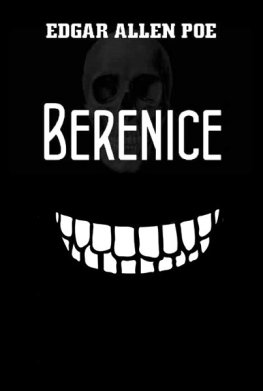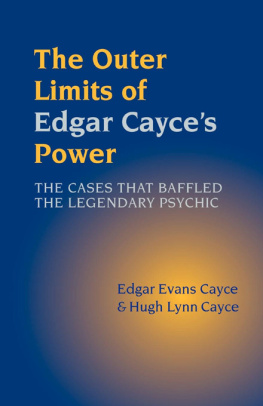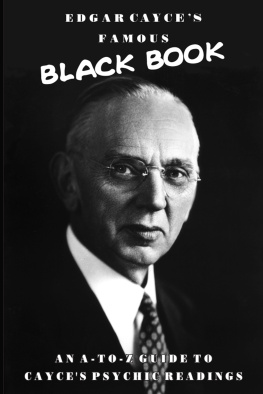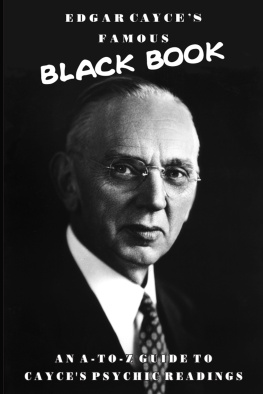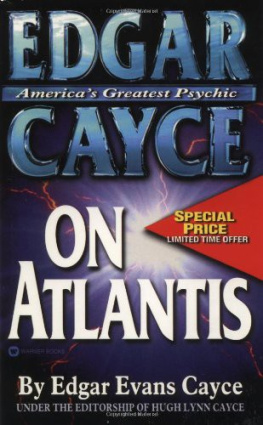Edgar Poe - The Island of the Fay
Here you can read online Edgar Poe - The Island of the Fay full text of the book (entire story) in english for free. Download pdf and epub, get meaning, cover and reviews about this ebook. genre: Prose. Description of the work, (preface) as well as reviews are available. Best literature library LitArk.com created for fans of good reading and offers a wide selection of genres:
Romance novel
Science fiction
Adventure
Detective
Science
History
Home and family
Prose
Art
Politics
Computer
Non-fiction
Religion
Business
Children
Humor
Choose a favorite category and find really read worthwhile books. Enjoy immersion in the world of imagination, feel the emotions of the characters or learn something new for yourself, make an fascinating discovery.

The Island of the Fay: summary, description and annotation
We offer to read an annotation, description, summary or preface (depends on what the author of the book "The Island of the Fay" wrote himself). If you haven't found the necessary information about the book — write in the comments, we will try to find it.
The Island of the Fay — read online for free the complete book (whole text) full work
Below is the text of the book, divided by pages. System saving the place of the last page read, allows you to conveniently read the book "The Island of the Fay" online for free, without having to search again every time where you left off. Put a bookmark, and you can go to the page where you finished reading at any time.
Font size:
Interval:
Bookmark:
The Island of the Fay
by Edgar Allan Poe
Nullus enim locus sine genio est.Servius .
"La musique," says Marmontel, in those "Contes Moraux" which in all our translations, we have insisted upon calling "Moral Tales," as if in mockery of their spirit"la musique est le seul des talents qui jouissent de lui-meme; tous les autres veulent des temoins." He here confounds the pleasure derivable from sweet sounds with the capacity for creating them. No more than any other talent, is that for music susceptible of complete enjoyment, where there is no second party to appreciate its exercise. And it is only in common with other talents that it produces effects which may be fully enjoyed in solitude. The idea which the raconteur has either failed to entertain clearly, or has sacrificed in its expression to his national love of point, is, doubtless, the very tenable one that the higher order of music is the most thoroughly estimated when we are exclusively alone. The proposition, in this form, will be admitted at once by those who love the lyre for its own sake, and for its spiritual uses. But there is one pleasure still within the reach of fallen mortality and perhaps only onewhich owes even more than does music to the accessory sentiment of seclusion. I mean the happiness experienced in the contemplation of natural scenery. In truth, the man who would behold aright the glory of God upon earth must in solitude behold that glory. To me, at least, the presencenot of human life only, but of life in any other form than that of the green things which grow upon the soil and are voicelessis a stain upon the landscapeis at war with the genius of the scene. I love, indeed, to regard the dark valleys, and the gray rocks, and the waters that silently smile, and the forests that sigh in uneasy slumbers, and the proud watchful mountains that look down upon all,I love to regard these as themselves but the colossal members of one vast animate and sentient wholea whole whose form (that of the sphere) is the most perfect and most inclusive of all; whose path is among associate planets; whose meek handmaiden is the moon, whose mediate sovereign is the sun; whose life is eternity, whose thought is that of a God; whose enjoyment is knowledge; whose destinies are lost in immensity, whose cognizance of ourselves is akin with our own cognizance of the animalculae which infest the braina being which we, in consequence, regard as purely inanimate and material much in the same manner as these animalculae must thus regard us.
Our telescopes and our mathematical investigations assure us on every handnotwithstanding the cant of the more ignorant of the priesthoodthat space, and therefore that bulk, is an important consideration in the eyes of the Almighty. The cycles in which the stars move are those best adapted for the evolution, without collision, of the greatest possible number of bodies. The forms of those bodies are accurately such as, within a given surface, to include the greatest possible amount of matter;while the surfaces themselves are so disposed as to accommodate a denser population than could be accommodated on the same surfaces otherwise arranged. Nor is it any argument against bulk being an object with God, that space itself is infinite; for there may be an infinity of matter to fill it. And since we see clearly that the endowment of matter with vitality is a principleindeed, as far as our judgments extend, the leading principle in the operations of Deity,it is scarcely logical to imagine it confined to the regions of the minute, where we daily trace it, and not extending to those of the august. As we find cycle within cycle without end,yet all revolving around one far-distant centre which is the God-head, may we not analogically suppose in the same manner, life within life, the less within the greater, and all within the Spirit Divine? In short, we are madly erring, through self-esteem, in believing man, in either his temporal or future destinies, to be of more moment in the universe than that vast "clod of the valley" which he tills and contemns, and to which he denies a soul for no more profound reason than that he does not behold it in operation.
These fancies, and such as these, have always given to my meditations among the mountains and the forests, by the rivers and the ocean, a tinge of what the everyday world would not fail to term fantastic. My wanderings amid such scenes have been many, and far-searching, and often solitary; and the interest with which I have strayed through many a dim, deep valley, or gazed into the reflected Heaven of many a bright lake, has been an interest greatly deepened by the thought that I have strayed and gazed alone. What flippant Frenchman was it who said in allusion to the well-known work of Zimmerman, that, "la solitude est une belle chose; mais il faut quelqu'un pour vous dire que la solitude est une belle chose?" The epigram cannot be gainsayed; but the necessity is a thing that does not exist.
It was during one of my lonely journeyings, amid a far distant region of mountain locked within mountain, and sad rivers and melancholy tarn writhing or sleeping within allthat I chanced upon a certain rivulet and island. I came upon them suddenly in the leafy June, and threw myself upon the turf, beneath the branches of an unknown odorous shrub, that I might doze as I contemplated the scene. I felt that thus only should I look upon itsuch was the character of phantasm which it wore.
On all sidessave to the west, where the sun was about sinkingarose the verdant walls of the forest. The little river which turned sharply in its course, and was thus immediately lost to sight, seemed to have no exit from its prison, but to be absorbed by the deep green foliage of the trees to the eastwhile in the opposite quarter (so it appeared to me as I lay at length and glanced upward) there poured down noiselessly and continuously into the valley, a rich golden and crimson waterfall from the sunset fountains of the sky.
About midway in the short vista which my dreamy vision took in, one small circular island, profusely verdured, reposed upon the bosom of the stream.
So blended bank and shadow there
That each seemed pendulous in airso mirror-like was the glassy water, that it was scarcely possible to say at what point upon the slope of the emerald turf its crystal dominion began.
My position enabled me to include in a single view both the eastern and western extremities of the islet; and I observed a singularly-marked difference in their aspects. The latter was all one radiant harem of garden beauties. It glowed and blushed beneath the eyes of the slant sunlight, and fairly laughed with flowers. The grass was short, springy, sweet-scented, and Asphodel-interspersed. The trees were lithe, mirthful, erectbright, slender, and graceful,of eastern figure and foliage, with bark smooth, glossy, and parti-colored. There seemed a deep sense of life and joy about all; and although no airs blew from out the heavens, yet every thing had motion through the gentle sweepings to and fro of innumerable butterflies, that might have been mistaken for tulips with wings.
The other or eastern end of the isle was whelmed in the blackest shade. A sombre, yet beautiful and peaceful gloom here pervaded all things. The trees were dark in color, and mournful in form and attitude, wreathing themselves into sad, solemn, and spectral shapes that conveyed ideas of mortal sorrow and untimely death. The grass wore the deep tint of the cypress, and the heads of its blades hung droopingly, and hither and thither among it were many small unsightly hillocks, low and narrow, and not very long, that had the aspect of graves, but were not; although over and all about them the rue and the rosemary clambered. The shade of the trees fell heavily upon the water, and seemed to bury itself therein, impregnating the depths of the element with darkness. I fancied that each shadow, as the sun descended lower and lower, separated itself sullenly from the trunk that gave it birth, and thus became absorbed by the stream; while other shadows issued momently from the trees, taking the place of their predecessors thus entombed.
Font size:
Interval:
Bookmark:
Similar books «The Island of the Fay»
Look at similar books to The Island of the Fay. We have selected literature similar in name and meaning in the hope of providing readers with more options to find new, interesting, not yet read works.
Discussion, reviews of the book The Island of the Fay and just readers' own opinions. Leave your comments, write what you think about the work, its meaning or the main characters. Specify what exactly you liked and what you didn't like, and why you think so.


